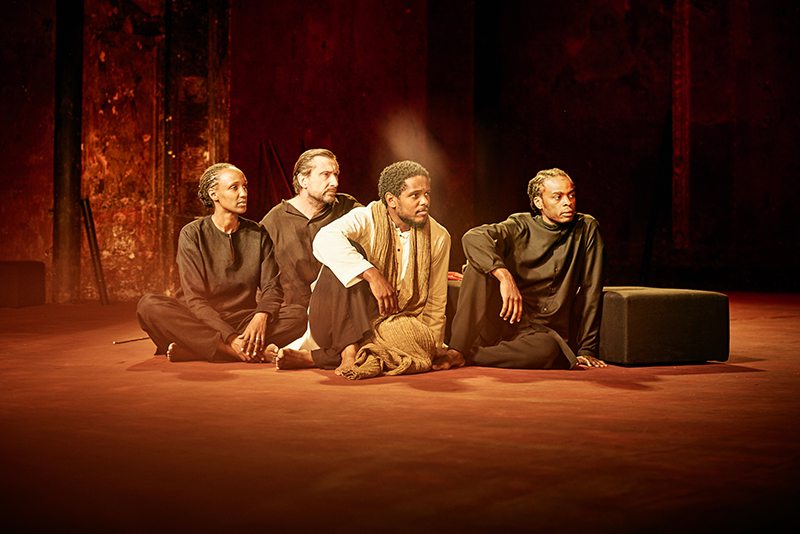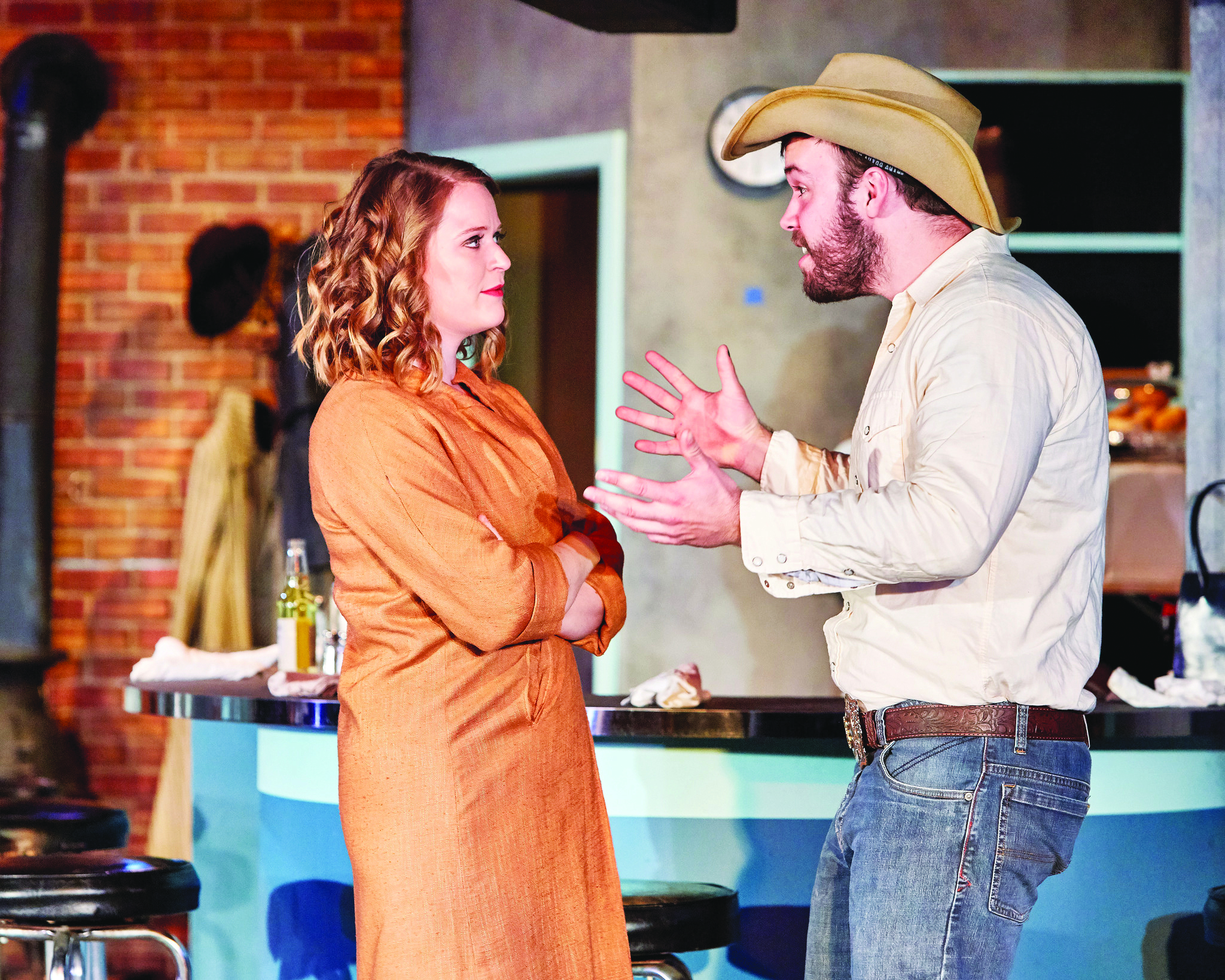By Charles Brousse
In this world of fractured cultures, British director Peter Brook comes about as close as anyone can to being the theatrical equivalent of a universally acknowledged rock star. The awards and honors seem endless. His name on a production like A.C.T.’s current Battlefield will bring on a flurry of media excitement and send ticket-buyers racing to their phones. The enthusiasm is fueled by the perception that Brook is sui generis—a giant among his tradition-bound contemporaries and someone who doesn’t follow the rules and creates a unique experience with daring and risky experiments that are exhilarating even when they fail. On top of all of that, he’s a master showman, with a keen sense of what will attract public attention.
Throughout his career, Brook has been a rebel. His apprentice work in various theaters in London’s commercial West End (the British equivalent of New York’s Broadway) during the early 1940s turned him against what he called their “lethargy, lifelessness and traditionalness,” but he chose a different escape route from the drab social realism embraced by John Osborne’s post-war “Angry Young Men” movement. For him, theater should be a lively and entertaining spectacle—kind of a circus with words—even if the subject matter is occasionally dark. His immediate influences included Antonin Artaud’s “Theater of Cruelty,” Bertolt Brecht’s integration of music and dramatic dialogue and Joan Littlewood’s and Jerzy Grotowski’s emphasis on action over speech. It was a winning formula, one which brought him to the Royal Shakespeare Company, where he turned out hit after hit during the ’60s and ’70s.
That was when I began to be aware of his presence, specifically in productions like Peter Weiss’ gripping Marat/Sade, the magical A Midsummer Night’s Dream at A.C.T. and the memorable film version of William Golding’s novel, Lord of the Flies. Ironically, though, this was precisely the point when Brook decided to jettison the directing style focused on movement and imagery that had brought him international fame—he now called it “youthful excess”—and to adopt an aesthetic based on simplicity which he described in a 1968 how-to book entitled The Empty Space. No need for fancy trappings, he wrote. Theater can take place anytime, anywhere, large or small, as long as there is an actor or two and somebody watching.
As it turned out, however, there was one last burst of the old showman spirit left. In the early 1980s, Brook directed a stage adaptation (by Jean-Claude Carrière) of the Hindu epic creation story poem The Mahabharata, performed in a quarry outside Avignon. He then took an English language version on a four-year world tour before bringing it to the Brooklyn Academy of Music for its American premiere in 1985. The piece was several times longer than Homer’s Iliad and Odyssey combined. It required a multinational cast of dozens of actors, numerous scene and costume changes and an eight-hour playing time that left some audience members with (as one sly critic put it) “bruised bums.”
Well, now we have Battlefield and we know what simplicity meant. Written and directed by Brook and his longtime collaborator, Marie-Hélène Estienne, it’s a highly condensed, 70-minute, no set, four actors and a drummer one-act account of what the writers imagine happened after the events described in The Mahabharata. The war between the forces of good and the forces of evil is over and the former have won following a battle that killed millions on both sides. After hearing a graphic description of how the bodies are being devoured by scavengers and learning that their king was actually a close relative, the leader of the victorious army declares that he’d rather live a quiet life in the forest than ascend to the throne.
Most of the remainder of the play is devoted to exploring this dilemma through a series of parables and historical references that I won’t attempt to recount for fear of getting it wrong. Lots of esoteric exchanges, but very little action—this from a former champion of physical theater! The actors are fine and the drummer (Toshi Tsuchitori, who has been with the production since its debut) is superb.
Given that Brook is only 92 and has changed direction multiple times, it wouldn’t surprise me if he did it again. Can’t wait.
NOW PLAYING: Battlefield runs through Sunday, May 21 at A.C.T.’s Geary Theatre, 415 Geary St., San Francisco; 415/749-2228; act-sf.org.











